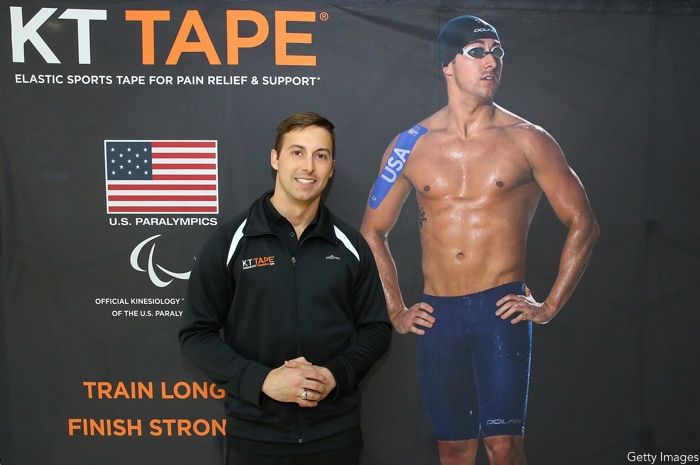While some Paralympians are born with their conditions, Tucker Dupree was 17 when he lost 80 percent of his vision in a matter of months and was left with a sudden change of lifestyle. Rather than make excuses, Dupree, now 27, saw the Paralympics as a new avenue, and two years later, he was swimming in Beijing. In London, Dupree earned three medals (one silver and two bronze). His goal is gold in the pool in Rio.
ThePostGame: How did you learn of your condition?
TUCKER DUPREE: I got in my car after a school day, covered my right eye and noticed I couldn’t see the emblem of my steering wheeling out of my left eye. My right eye was fine. It was just the left. And then we started around two months of testing. I was diagnosed with a rare eye condition two months later called Leber's Hereditary Optic Neuropathy. When I was diagnosed, doctors told me this was one of the rarest eye conditions in the world ... one of 9,000 people ever to have this condition. There's no cure. There is nothing else we can do. You have to prepare for the worst and hope for the best. About four months later, I started to lose vision in my right eye as well. I lost 80 percent of my vision in four months. I was driving home one day, and I noticed I could not see the stop lights at all.
TPG: How did you start in the Paralympics?
DUPREE: I found out about the Paralympics from another athlete. I swam in Beijing. I went from swimming in small swim meets when my parents were there to swimming in the Super Bowl. I got chewed up and spit out. I finished fourth, fifth twice, sixth twice and seventh [once]. But it really lit the fire for me for the next couple of years. I swam all over the world for the next few years. In London, I won a silver medal in the 100-meter backstroke, a bronze medal in the 50-meter freestyle and a bronze in the 100-meter freestyle. I won three medals in the 2012 games. I was able to finally hit the podium and see the flag raised for our country. It was very humbling, not only to be an athlete at the Paralympic games, but also to represent our country. To wear the uniform is something I can't even fathom just telling people what it is like. There are no words for it. I have been able to represent our country in two games, and I'm currently training for Rio and getting ready to go win two gold medals in the 100-meter backstroke and the 50-meter freestyle.

TPG: You say you have 80 percent vision loss. What does that mean?
DUPREE: It looks like what you'd see when you ball up your first and put it in front of your eye and look past your hands. I can see peripherally and in color. Whenever I swim I count all of my stroke cycles in my head. And the lane ropes change color five meters shy of the wall, so I can see that. If I hit the wall with my face, I should retire (laughs).
TPG: What is your training regiment like?
DUPREE: I train six hours a day. I have a two-hour swim session in the morning and a two-hour weight lifting session in the afternoon. And I have another two-hour water session later in the day. Plus, recovery. I have to make sure I take care of my body. It's a full time job.
TPG: Why do you use KT Tape?
DUPREE: I found out about KT Tape because I was going through a shoulder issue, and obviously I'm a swimmer -- we use our arms so much that it is a common injury. I had the opportunity of either doing cortisone shots or figuring out how to rehab myself back to health. I started using the KT tape actually to support that muscle structure at first. And we used it for all my physical therapy. It was one of those things where I found out the benefit of it, to now I can use it in training to make sure that it is always supported. I use back support as well.
3-time Paralympic medalist Tucker Dupree (@TuckerUSA1) explains how he competes without 80% of his central vision.https://t.co/lYZAo4HXBQ
— ThePostGame.com (@ThePostGame) March 22, 2016
The 2016 Paralympic Games begin Wednesday with the Opening Ceremony. The swimming competition starts Thursday.
-- Follow Jeffrey Eisenband on Twitter @JeffEisenband.





